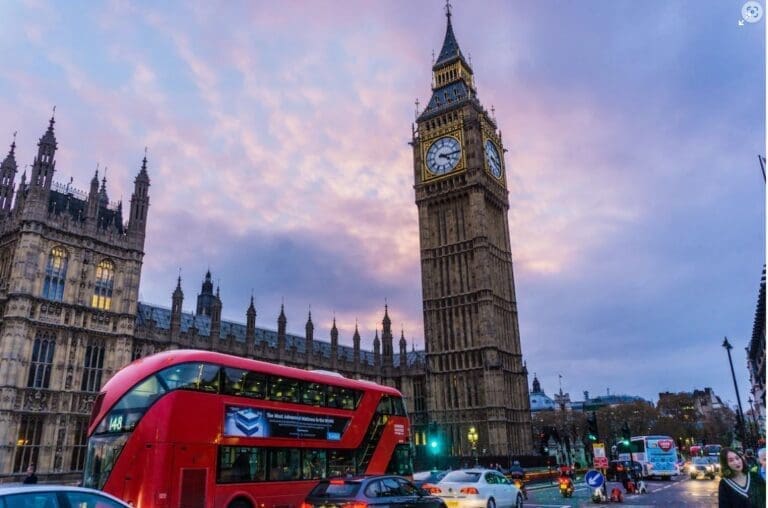 Less often discussed amidst the general revival of the tourism and hospitality sector has been the resilience of domestic travel, favoured since the pandemic. Last month’s sector report by McKinsey bears this out, showing that 75% of trips worldwide in 2023 were domestic ones. Even in Western Europe, with its Schengen free travel area, this figure stands at 58%. With domestic travel set to grow further still, at a predicted rise of 3% annually, reaching 19 billion lodging nights per year by 2030,[1] hotels should adapt their services to match.
Less often discussed amidst the general revival of the tourism and hospitality sector has been the resilience of domestic travel, favoured since the pandemic. Last month’s sector report by McKinsey bears this out, showing that 75% of trips worldwide in 2023 were domestic ones. Even in Western Europe, with its Schengen free travel area, this figure stands at 58%. With domestic travel set to grow further still, at a predicted rise of 3% annually, reaching 19 billion lodging nights per year by 2030,[1] hotels should adapt their services to match.
Hoteliers should note the changing tastes and preferences of domestic travellers. Namely, they are now putting a premium on local immersion, social responsibility, and sustainability. And so, in order to benefit from the renewed growth of this kind of tourism, hotels can highlight these aspects, while making a concerted effort to appeal to younger customers, who are currently more likely to go overseas for their holidays.
Local immersion
Utilise your surroundings and conditions to the best of your ability. The British weather can be tempestuous at best and a recent report didn’t help to dispel this view, recording that it has been the worst British summer on record in 100 years. As hoteliers, we are experts in entertaining guests no matter the weather and we must put those skills to good, to end our rural communities’ reliance on the sun. For instance, an activity that isn’t weather- dependent to partake in is one of Burgh Island’s regular murder mystery weekends, while events such as the Bigbury Net Zero environmentalist group ‘island assembly’ — hosted by our hotel — have also helped to bring new custom to the community in recent years.
One way to offer these kinds of local experiences to guests is to partner with the community: its businesses and its people. For instance, hoteliers can aim to source ingredients locally. This aligns with guests’ culinary tastes, and it also helps hotels build robust connections with local businesses.
Further, hotels can reach out to local artisanal producers and distilleries to offer tours, tasting courses, and other gastronomical experiences to their guests. At Burgh, we are proud to source 80% of our kitchen ingredients from within a 30-mile radius of our hotel – a practice that lets us offer guests the best of Devon’s local produce.
The same applies to cultural and heritage activities. Hotels can partner with local guides, museums, or galleries to provide walking tours and similar excursions. Unique regional experiences are very much in vogue when it comes to domestic tourism, and with the right local partnerships the hotel trade can reap the benefits.
For one, hotels, however grand, cannot hold themselves aloof from the local community. This is not just a social responsibility, but one that reaps commercial benefits. Increasingly, tourists want to be fully engaged in their holiday destinations. According to a recent survey by the hospitality sector observer Mabrian, tourists now rank immersion in the local area almost as highly as more conventional holiday activities like poolside lounging.[2] But, at Burgh, we understand the role our local community plays in shaping the island into a sought-after destination. We are committed to ensuring that they remain an integral part of our vision. For instance, we welcome those who are not guests at our establishment to join us for our daily cream tea, a concoction of yours truly. By actively engaging with locals and providing communal spaces and events for all to come together, we hope to preserve Bigbury-on-Sea’s tight-knit community, while providing all the benefits of a bustling tourism industry.
Light-touch travel
Tourists are also becoming more concerned about their environmental impact. They want their vacations to be as carbon neutral as possible, and are concerned about the effects of possible ‘overtourism’ on the places that they are visiting – when polled, half of all tourists would be willing to pay higher costs for a more sustainable holiday.[3] To thrive amidst the revival of domestic travel, hotels should aim to answer these concerns.
For one, hoteliers can take steps to show guests that sustainability is important to them, and is embedded in the day-to-day running of their establishments.
At Burgh Island, we have made a conscious effort to do this, building solar panels on our disused tennis courts. We also ensure that all recyclable waste is in fact recycled rather than simply thrown away and are always looking for ways to minimise our water and energy use while maintaining the same standards of service that our guests expect. All lights in our hotel use energy-efficient lightbulbs, and our outdoor lights are equipped with timers to prevent unnecessary use.
Hotels can also take steps to reduce the possible negative side-effects of tourism on local communities. Procuring from local providers is an excellent way to do this, making sure that the community shares fully in the financial benefits of tourism in the area.
In fact, hotels that cater mainly to the domestic market are uniquely capable of meeting these concerns about overtourism. They are often small and boutique, and so do not dominate their local areas. For example, Burgh Island is tucked away on a tidal island in rural Devon and has a capacity of only 25 rooms. Hotels like these can offer guests a relaxing getaway that does not crowd out the local community.
(Really) getting away from it all
Another area of focus for hoteliers looking to attract domestic custom is the youth market. McKinsey’s recent report showed that younger guests take an equal number of domestic and foreign trips – despite, on average, having smaller disposable incomes than older travellers. There is clearly a marked consumer preference at work here that hoteliers ought to address.
But nothing about this is inevitable. The British hotel sector is demonstrably able to attract younger guests. This has chiefly been shown by the growth of ‘staycations’ over the last decade or so – something that was driven overwhelmingly by millennial holidayers.
For younger tourists, the main virtue of this kind of a staycation is its potential as a real detox, away from both the cares of ordinary life, as well as the din and overcrowding that is often found in more traditional holiday destinations. Therefore, the sector should lean into its advantages on this front in order to attract a younger clientele, offering a relaxed and tranquil home away from home.
Domestic tourists now want trips that are sustainable, relaxed, socially responsible, and immersive in the local area. As the sector grows anew, hoteliers should adapt their services and facilities in order to benefit fully.
[1] https://www.mckinsey.com/featured-insights/mckinsey-explainers/what-is-the-future-of-travel
[2] https://mabrian.com/blog/evolving-traveller-behaviour-the-rise-of-experiential-travelling/
[3] https://www.euronews.com/my-europe/2023/06/27/50-of-tourists-want-sustainable-holidays-despite-higher-costs-bookingcom#:~:text=A%20Booking.com%20survey%20found,encounter%20obstacles%20in%20this%20process




















